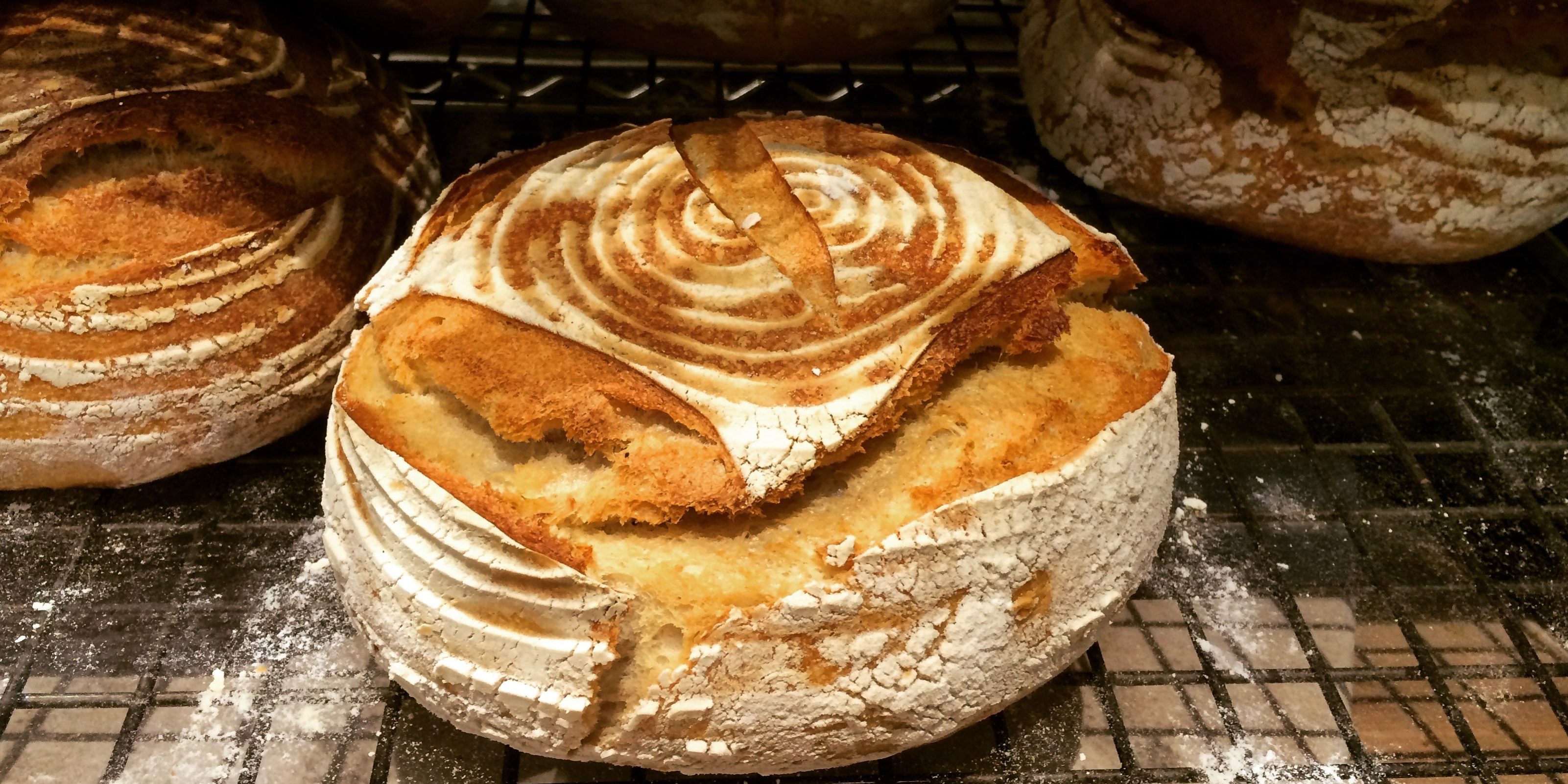
Have trouble digesting gluten and wheat? Looking for a healthier bread option? Try sourdough! But make sure it’s been properly fermented before you dig in. Compared to non-fermented grain products, well-fermented breads like sourdough are better for your health. Why? Because they’re easier to digest and more nutritious.
Gluten Intolerance
Gluten intolerance is an extremely trendy topic right now. It’s often exaggerated in modern consumer culture (as this comedic video starring my good friend, JP Sears, reveals). However, gluten intolerance and other health issues regarding grain consumption are legitimate concerns. As I explained in a previous blog post, Foundation for Human Nutrition: Part IV, it is important to consider the digestibility and nutritional value (or lack thereof) of the starches and fibers found in grain-based foods. Bread may be a convenient part of your diet, but it’s not always the best choice—unless it’s fermented! Luckily many of the problems caused by grain are solved by the fermentation process used in many traditional cultures. In America, the prevailing fermented bread is the delicious sourdough.
What Makes Fermented Bread Healthier?
Fermented breads like sourdough are healthier and easier to digest thanks to the microbial community involved in the fermentation process. Microbial strains pre-digest the irritating starches and gluten molecules, breaking them down into a more tolerable and digestible form.1,2 This is why properly-fermented sourdough is often suitable for celiac patients and people with gluten intolerance.3 Additionally, the right microbes will produce added nutrients and reduce toxins, further increasing the quality of the food.4,5 The sourdough fermentation process turns the bad stuff in bread into good stuff, making it a healthier option!
Are All Sourdough Breads Good for Me?
In my experience, results vary among different types of sourdough available for consumption. When added to an otherwise grain-free diet, not all sourdough breads seem to digest as well or maintain a symptom-free state. This has been the case for both me and my clients who respond poorly to wheat. However, I have also found many fermented grain products—-including sourdough breads—that digest very well and make me feel absolutely great!
Why the difference? Well, not all sourdough is created equal. The type of bacteria and yeast used, the length of fermentation, and the type of flour used can all make a difference in the quality. Any added ingredients which are not a part of the classic recipe can alter the fermentation process as well. Beware that some “sourdough” breads out there aren’t truly deserving of the name. Many of these breads have not been allowed to ferment sufficiently or have not been fermented at all.
Tips for Selecting Healthy Sourdough Bread
In general, stay away from store-bought sourdough bread, which is often made “sour” not by fermentation, but by adding a sour flavoring agent. When buying sourdough from a bakery, proceed with caution because many bakeries do not actually ferment the bread overnight. Ask questions to make sure it has undergone the proper fermentation process, which takes at least 24 hours. Take the time to find good local vendors, or try making fermented bread at home! Here’s what to look for:
- Traditional recipe containing a starter culture
- 24-hour period of rising before baking
- No oils or preservatives
- No enzymes or flavors
- Avoid enriched flour
Where to Buy Quality Sourdough
To get quality sourdough, you’ll probably need to find an actual bakery in your area. However, there are some groceries and national bread companies that produce traditional products. In St. Louis Union Loafers is an example of a local bakery selling real sourdough (EDIT: this post used to promote a national chain but I have recently learned the processing of the dough is not up to my standards). If you prefer eating out, Katie’s Pizza & Pasta on Manchester in St. Louis is a reliable and delicious source for healthy, well-fermented bread items. They use an heirloom wheat variety and ferment the pizza dough for up to 4 days.
Interested in receiving more in-depth info on the latest trends in health and nutrition? Sign up for my monthly newsletter!
References
- Gerez CL, Rollán GC, de Valdez GF. Gluten breakdown by lactobacilli and pediococci strains isolated from sourdough. Lett Appl Microbiol 42, No. 5 (May 2006): 459-464. http://www.ncbi.nlm.nih.gov/pubmed/16620203
- 5 Reasons to Make Sourdough Your Only Bread. Real Food Forager (Jan 2012). http://realfoodforager.com/5-reasons-to-make-sourdough-your-only-bread/
- Di Cagno R, De Angelis M, Auricchio S, et al. Sourdough bread made from wheat and nontoxic flours and started with selected lactobacilli is tolerated in celiac sprue patients. Appl Environ Microbiol 70, No. 2 (Feb 2004): 1088-1096. http://www.ncbi.nlm.nih.gov/pubmed/14766592
- Leenhardt F, Levrat-Verny MA, Chanliaud E, et al. Moderate decrease of pH by sourdough fermentation is sufficient to reduce phytate content of whole wheat flour through endogenous phytase activity. J Agric Food Chem 53, No. 1 (Jan 2005): 98-102. http://www.ncbi.nlm.nih.gov/pubmed/15631515
- Bohn T, Davidsson L, Walczyk T, et al. Phytic acid added to white-wheat bread inhibits fractional apparent magnesium absorption in humans. Am J Clin Nutr 79, No. 3 (Mar 2004): 418-423. http://www.ncbi.nlm.nih.gov/pubmed/14985216







